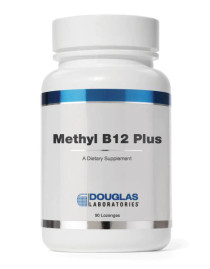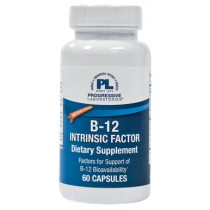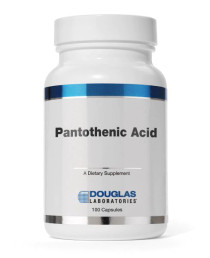Vitamin B12
Vitamin B12 is a nutrient that helps to keep the body’s nerve and blood cells healthy and helps make DNA, the genetic material in all cells. There are two steps that are required for the body to absorb vitamin B12 from food.
First, hydrochloric acid in the stomach separates vitamin B12 from the protein to which vitamin B12 is attached in food. After this, vitamin B12 combines with a protein made by the stomach called intrinsic factor and is absorbed by the body. Some people have pernicious anemia, a condition in which they cannot make intrinsic factor. As a result, they have trouble absorbing vitamin B12 from all foods and dietary supplements.
Vitamin B12 deficiency affects between 1.5% and 15% of the public. Symptoms of vitamin B12 deficiency can include: tiredness, weakness, constipation, loss of appetite, weight loss, and megaloblastic anemia. One can also have numbness/ tingling, balance issues, depression, confusion, dementia, poor memory, and mouth/ tongue soreness. Vitamin B12 deficiency can damage the nervous system even in people who don’t have anemia, so it is important to treat a deficiency as soon as possible.
















